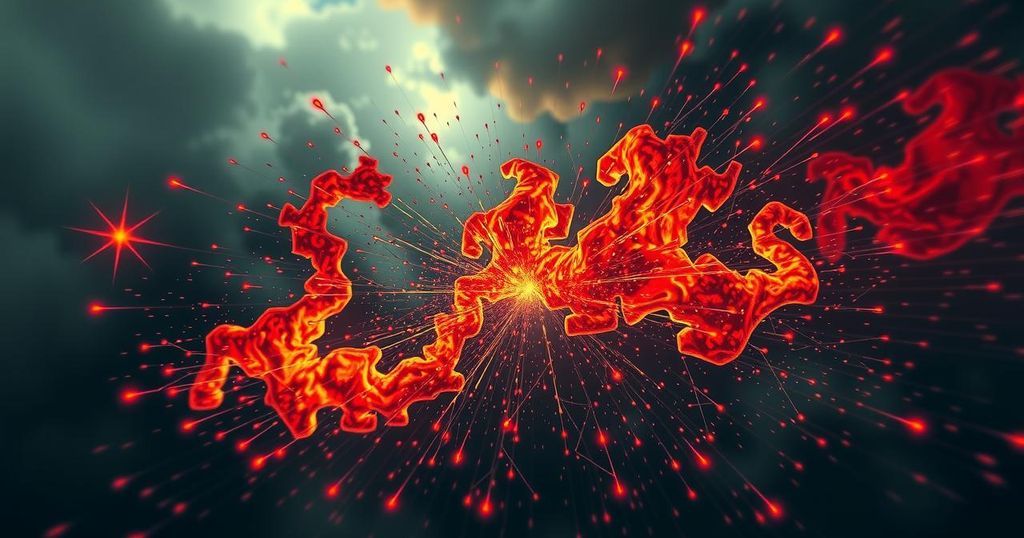Election disinformation is escalating, with significant figures spreading baseless claims and conspiracy theories, especially as elections approach. Legal pressures on disinformation combatants and lax content moderation on social media platforms amplify the issue. The environment is further complicated by global tensions and advancements in technology, fostering a landscape ripe for misinformation that could destabilize public trust and electoral integrity.
In recent discussions surrounding election integrity and disinformation, experts identify a troubling environment characterized by chaos and conspiracy theories, particularly in the lead-up to the elections. Notable figures such as Donald Trump, Elon Musk, and Marjorie Taylor Greene have contributed to the proliferation of misleading information, notably regarding recent hurricanes and their impacts. Elaine Godfrey, a political analyst, states that this moment is especially conducive to conspiracy theories due to several factors that have evolved since the 2020 elections. Prominent political figures are increasingly targeting the very institutions designed to combat disinformation, threatening them with legal repercussions that impede their efforts. This has led to a significant chilling effect within research organizations tasked with monitoring and addressing disinformation. Furthermore, the emergence of organizations like the Election Integrity Network has aided in spreading distrust regarding elections. As major social media platforms relax their content moderation efforts, disinformation spreads more readily without adequate checks. Global conflicts and crises have further intensified attempts by foreign actors to interfere in American political affairs, while advancements in generative AI present new avenues for disinformation dissemination. Godfrey observes that, although some conspiracy theories retain kernels of truth, many recent claims are baseless and exaggerated, fostering confusion and fear among the public. The potential real-world consequences of this disinformation are profound, affecting the safety of officials and undermining public trust in democratic processes. Election workers face undue pressure and harassment fueled by false narratives, contributing to overall societal turmoil that may escalate following the election. Godfrey emphasizes the importance of vigilance and skepticism regarding sensational claims on social media, especially those that provoke strong emotional responses. The upcoming election cycle presents a significant challenge, but experts hold that preparation and a cautious approach can mitigate some of the damage caused by disinformation.
The landscape of political disinformation has shifted significantly since the last presidential election in 2020. With increasing legal obstacles against organizations addressing disinformation and a noticeable decline in content moderation by major social media platforms, misinformation regarding political processes has flourished. Influential figures such as politicians from the Republican Party propagate unverified claims, often distorting reality to serve political agendas. This situation is exacerbated by foreign interference and advancements in AI that make it easier to manipulate information online. Understanding the current state of disinformation is crucial for safeguarding the election integrity and public trust in government institutions.
In summary, the current environment is marked by a troubling surge in election-related disinformation, exacerbated by legal actions against moderating bodies, the rise of conspiracy-promoting organizations, and a lack of robust content management by social media giants. The implications of these developments extend beyond mere misinformation—they threaten the stability of democratic institutions and the safety of officials involved in the electoral process. Continuous vigilance and education are necessary to navigate the chaos inherent in the forthcoming election cycle.
Original Source: www.theatlantic.com






